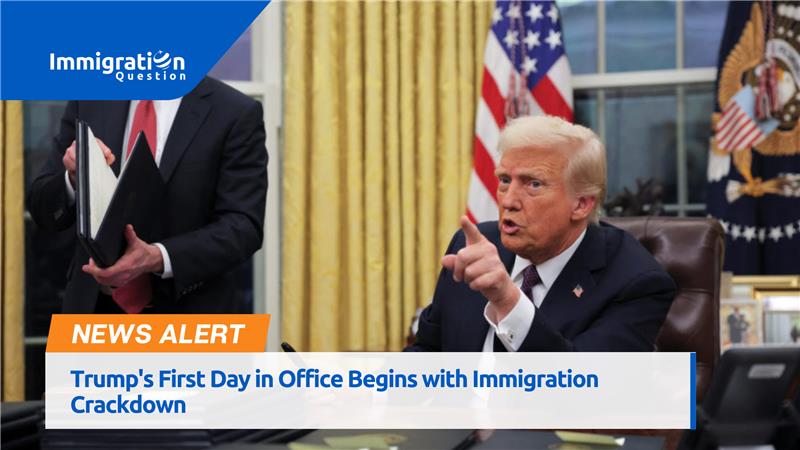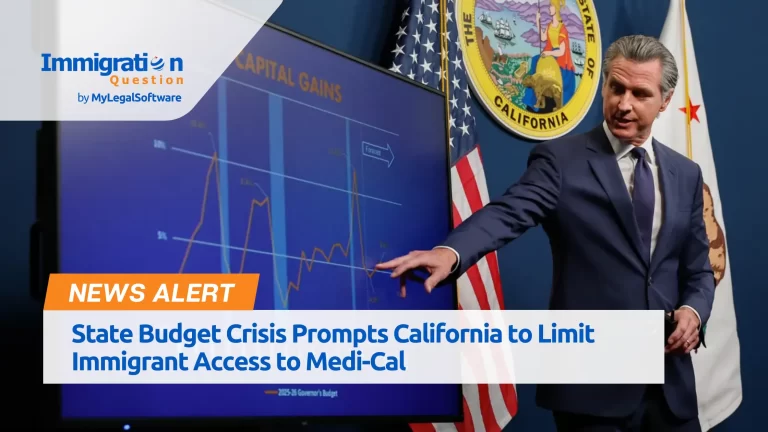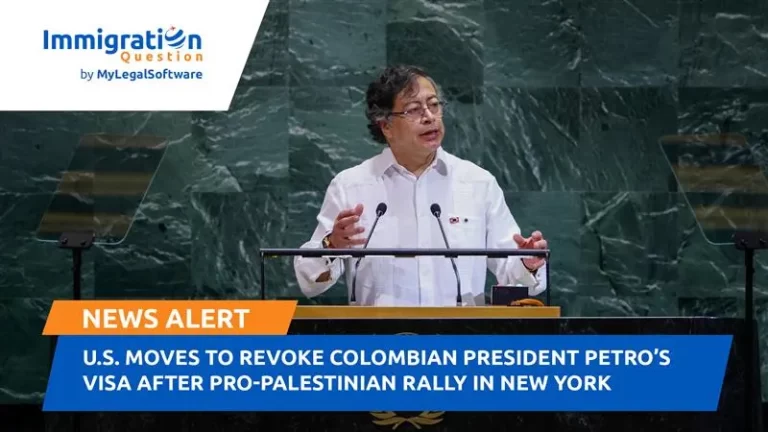President Donald Trump issued a series of immigration-focused executive orders on Monday, his first day in office, signaling a drastic shift in U.S. border policy. These orders include declaring a national emergency at the southern border, limiting birthright citizenship, and halting asylum applications. Trump also suspended refugee admissions, shuttered the CBP One app for asylum-seekers, and revived several restrictive immigration policies.
The sweeping measures aim to deliver on Trump’s campaign promises to clamp down on immigration while reversing key aspects of the Biden administration’s border strategy. Immigrant advocacy groups are already mounting legal challenges to these policies, with the American Civil Liberties Union (ACLU) leading the charge.
Key Executive Actions on Immigration
Halting an “Invasion”
Trump declared an “invasion” at the southern border, temporarily suspending physical entry and effectively halting asylum claims. Under this order, the federal government is authorized to “repel, repatriate, or remove” individuals deemed part of the so-called invasion. Entry will also be denied to noncitizens unable to provide sufficient medical or criminal history records, citing public health and safety concerns.
National Emergency Declaration
By declaring a national emergency, Trump has paved the way for deploying U.S. military forces and National Guard units to assist the Department of Homeland Security (DHS) in securing the border. The administration will resume construction of the border wall, aiming for what it terms “complete operational control” of the border. This measure also grants the defense secretary authority to mobilize armed forces and allocate resources, including detention facilities and air transportation, for immigration enforcement.
Reviving the Migrant Protection Protocols
The controversial Migrant Protection Protocols, also known as the “Remain in Mexico” policy, have been reinstated. Asylum-seekers will now be required to wait in Mexico, often under precarious conditions, until their U.S. immigration court hearings. Trump’s order also terminates a Biden-era parole program that temporarily allowed certain nationals to enter the U.S.
Challenges to Birthright Citizenship
One of the most contentious actions is Trump’s order to limit birthright citizenship. The policy redefines the interpretation of the Fourteenth Amendment, stating that children born in the U.S. to parents without lawful status or on temporary visas are not citizens. Legal experts expect this move to trigger a lengthy court battle, with the ACLU already filing a lawsuit challenging the constitutionality of the order.
Halted Use of the CBP One App
The CBP One app, a vital tool under the Biden administration for scheduling asylum-seeker appointments, has been discontinued. The suspension effectively eliminates one of the few remaining pathways for asylum-seekers to enter the U.S. Advocates warn that this decision strips away asylum rights and leaves thousands in limbo, with existing appointments canceled and no alternative processes in place.
Suspension of Refugee Admissions
Effective January 27, Trump’s order suspends refugee admissions, with exceptions made on a case-by-case basis if deemed in the national interest. The administration argues that only refugees capable of “full assimilation” should be admitted, pending a DHS report on the program’s future viability.
Designating Cartels as Terrorist Organizations
Another significant move includes an executive order allowing the designation of certain cartels as foreign terrorist organizations. This measure could lead to unprecedented actions, including military intervention in Mexico. Trump cited the “extraordinary threat” posed by cartels to U.S. national security as the rationale behind the order.
Enforcement Priorities and State Collaboration
Trump has directed U.S. Immigration and Customs Enforcement (ICE) to prioritize prosecution of immigration-related offenses. The order also encourages voluntary departures for unauthorized immigrants and authorizes state and local officials to enforce federal immigration laws. Noncompliant countries refusing to accept deportees may face U.S. sanctions.
Looking Ahead: Trump’s First Day in Office Begins with Immigration Crackdown
These executive orders represent a sweeping overhaul of U.S. immigration policy, but they are already facing fierce opposition. Immigrant rights groups and legal experts argue that many measures, including the birthright citizenship order, challenge constitutional protections.
As the legal battles unfold, the immediate impact on millions of migrants, asylum-seekers, and refugees is profound. Advocacy organizations are calling for international attention to the humanitarian implications of these policies.
Trump’s aggressive stance signals a dramatic escalation in immigration enforcement, but the long-term viability of these measures will depend on the courts and future administrations.
To stay updated and informed, watch our news section or drop your immigration queries on immigration question and get responses from professional attorneys.










